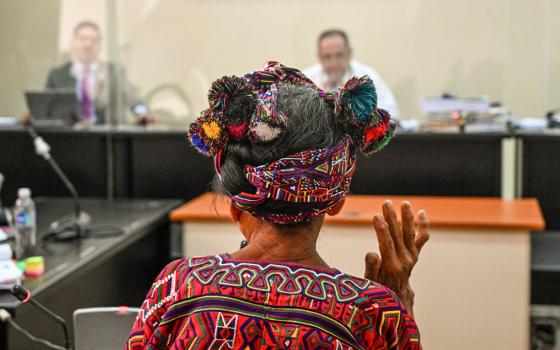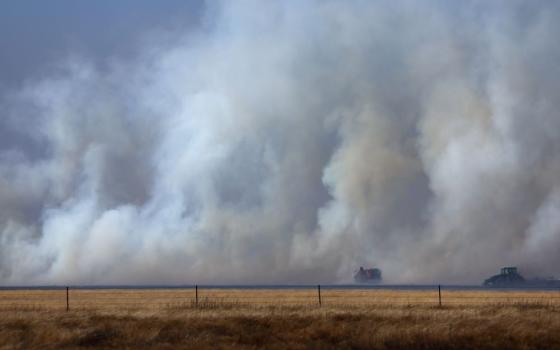Two news items, both of them good news, lead me to conclude that it is time to offer some friendly advice to our friends at the USCCB. First, yesterday the USCCB released the text of a letter from Cardinal Dolan and Archbishop Gomez to Speaker John Boehner on the need for immigration reform. Second, a small item in this morning’s Washington Post notes that in many states, although not all, the “anti-sharia law” movement is dead or drying.
The letter from Cardinal Dolan and Archbishop Gomez is reasonable but forceful. It places the issue of immigration reform squarely before the Speaker as a moral and humane concern. It contains the very happy news that the USCCB will be delivering an amicus brief in the case Arizona v. United States in support of the Obama administration’s position. All to the good. But, the letter failed to mention that the state laws that seek to make life more harsh and hostile for immigrants – all of them passed by GOP-controlled legislatures – touch on the exact same religious liberty concerns that provoked a more forceful response from the USCCB when it came to the issue of the HHS mandates. And, coming a week after the Administrative Committee meeting, and all the fanfare associated with their statement on religious liberty, this letter may unfortunately get buried in the news cycle.
Last November, when Bishop Lori addressed the USCCB plenary on the topic of religious liberty, the Alabama anti-immigration law was the first example of a threat to religious liberty that he cited. I applauded not only because what Lori said was the truth, but also because the bishops get a better hearing in the culture when they make sure to appear as principled, not partisan, players in the political realm. But, after that November speech, the statements from the USCCB, Bishop Lori’s testimony before Congress, the most recent statement from the Administrative Committee, none of these contained any reference to the religious liberty implications of the Alabama law. Why? Were the bishops worried about offending Republicans in Congress who were carrying their water in the fight against the mandates? If so, that is a level of political calculation that ill-becomes the USCCB.
I have also wondered aloud, and in print, about the hyperbolic rhetoric coming from the right wing bleachers on the topic of religious liberty. I know, I know – an odd complaint coming from the author of “J’Accuse” but there it is. But, surely, the anti-sharia law movement is as great a threat to religious liberty as an HHS mandate, although you wouldn’t know it from reading the commentary of Ambassador Glendon, George Weigel, and others. The right wing intelligentsia also mostly sat out the fight over the mosque in lower Manhattan. Because of the First Amendment is at least somewhat clear on the issue of religious liberty, Republican state legislators have mostly proposed banning all “foreign” law from consideration in state courts. Does that include the canon law of the Church? Where is the outrage against these anti-foreign law proposals? Or are we only allowed to get outraged when Democrats infringe on Catholic religious liberty?
One of the difficulties with any bureaucracy is that oftentimes the right hand doesn’t know what the left hand is doing. And, the USCCB seems to be particularly afflicted right now with a helter-skelter approach to public policy issues that is undermining their ability to actually affect the public debate. You see this, for example, in that most odd statement in the statement from the Administrative Committee last week: “This is not about the Bishops’ somehow ‘banning contraception,’ when the U.S. Supreme Court took that issue off the table two generations ago.” Who wrote that sentence and how did it survive through several drafts and the consideration of the full committee? Did someone take special pride in its authorship? Were the bishops too hurried to consider the implications, specifically the fact that it seems to suggest the bishops have no problem with Griswold v. Connecticut? Do they, then, also have no problem with Roe v. Wade? Did the Supreme Court “take that issue off the table” as well? Did it occur to anyone that there might be a value in releasing the Dolan-Gomez letter on immigration at the same time as the statement on immigration reform, or noting in the statement from the Administrative Committee that the bishops really were concerned about more than HHS mandates? Have the bishops asked themselves this question: What will our Latino Catholics think if it looks like the USCCB is going to really go to the mat over the issue of a contraception mandate but not really going to go to the mat over immigration reform? Are we going to get a prayer to be read at all Masses regarding immigration reform?
I am not a bureaucracy-hater to be sure. They are a necessary part of any complex society, bringing expertise to bear on highly complex issues for the benefit of all. In fact one of the most disingenuous parts of the attacks leveled by Gov. Scott Walker and other GOP darlings against “government workers” is that they get paid more than private sector employees. Government workers do tend to get paid more than private sector employees because their jobs require higher levels of education and expertise than your average private sector employee – when you factor in education and experience, most government bureaucrats could make much more in the private sector. And, those who work at the USCCB, like everyone who works for the Church, probably makes much less than their counterparts in secular bureaucracies. Like Catholic school teachers and Catholic Charities workers, the staff at the USCCB work there because they love the Church and Her mission.
Furthermore, while all bureaucracies function on a hierarchic principle, at the USCCB there is an even greater divide between the staff and the bosses: At the Dept. of Energy or the Treasury Department, a staffer can rise into the ranks of decision-makers, but the mostly lay staff at the USCCB do not have that option. So, it is especially important that the bishops find ways to coordinate the activities of their staff, put the recommendations of individual committees into perspective, and occasionally step back, as only people in decision-making positions can do, and ask the long-term questions. A leader must not only ask what is the right thing to do, but how to get it accomplished. A leader must take the long view always, recognizing that a statement issued in the heat of the moment and under the constraints of time, may do long-lasting harm to the underlying mission. A leader must build consensus, which is something different than a mere collection of compromises and, in the case of the USCCB, this is especially difficult because each bishop is Lord of the Manor in his own diocese and many bishops bristle at the task of forging consensus, and some lack the inter-personal skills to achieve it. For the life of me I do not know why anyone would want to be in a leadership position at the USCCB. But, lead they must and Cardinal Dolan and the other members of the hierarchy have a couple of months before their June meeting to ask themselves the deeper, more long-term questions about how they wish to function in the public square in a way that would not only be more successful, but more true to the full range of human concerns that their flocks wish them to consider.




